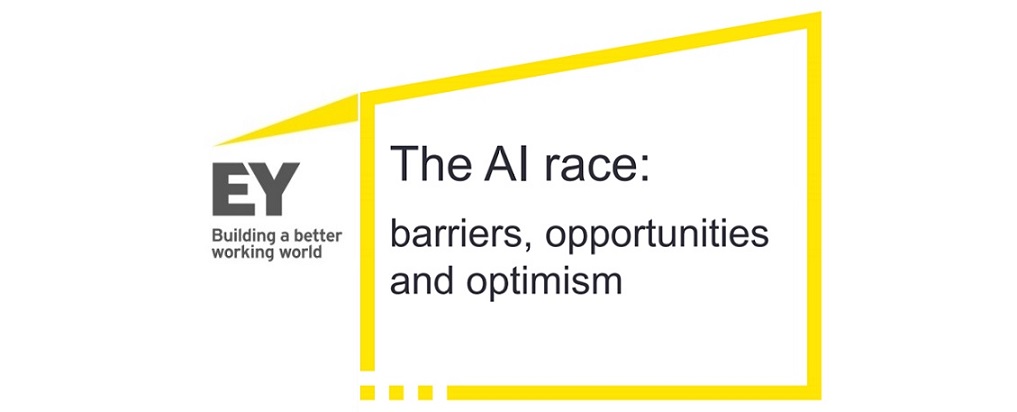
A study of US CEOs and business leaders, conducted by EY, revealed that most senior executives (85%) classify themselves as artificial intelligence (AI) optimists, citing increased investment and trust in the technology. Eighty-seven percent say their company will invest in AI initiatives this year. While CEOs are eager to implement AI and optimistic about how it can improve their businesses, the survey revealed that employees may not be so keen. According to respondents, employee trust (33%) is one of the greatest barriers to AI adoption.
US C-suite faces international and domestic challenges with AI
Despite the growing optimism around AI among the US C-suite, they are faced with international and domestic challenges with AI that could derail the US’ position in the global AI race, with China taking the lead. More than half of respondents (52%) ranked the US first when asked which country was leading the global AI race and half of respondents (50%) selected the US as the country with the best long-term AI strategy.
However, China was the clear runner-up; 47% of respondents selected China as the country that is the biggest obstacle to the advancement of AI in the US. Most respondents (80%) feel the US has the government that is most open to working with companies to adopt AI technology and most (71%) were in favor of uniform global regulation of AI, underscoring a need for countries to work together to develop ground rules for the technology.
Jeff Wong, EY Global Chief Innovation Officer, says: “AI is transforming businesses for the better as CEOs and boards are seeing the bottom-line impact the technology is having on their businesses. This drive for greater economic impact has led to a global race for adoption, scaling and greater efficiencies in the technology. While US business leaders believe that the US is leading this race, China is focused on becoming an AI leader by 2030 and the gap is already smaller than it seems for this aspiration to become a reality. For the US to maintain a strong position, business leaders need to advocate now for stronger AI education programs, collaboration among both the public and private sectors and focus on ensuring the reliability and performance of the technology.”
CEOs and business leaders trust AI, but employees are more cautious
While CEOs are eager to implement AI and optimistic about how it can improve their businesses, the survey revealed that employees may not be so keen. According to respondents, employee trust (33%) is one of the greatest barriers to AI adoption even though 87% of CEOs and business leaders completely or somewhat trust the technology. To help employees feel as optimistic about AI as their C-suite does, it is important to underscore reliability and performance (44%) and security (38%), which are the key factors contributing to an organization’s trust of AI.
With 82% of respondents expecting that their businesses will be disrupted by AI to some extent within the next three years, reliability and performance are of paramount importance. In addition, of this percentage, more than one-in-four respondents (29%) said that AI will disrupt more than half of their business, demonstrating how crucial it is for AI’s performance to show precise and consistent outcomes. For the technology to perform consistently, enterprises must understand, govern, fine-tune and protect all the components embedded within and around the AI system.
Wong says: “AI is about collaboration. This collaboration is imperative in the widespread adoption of the technology and it starts within the workforce. As the global AI race heats up and businesses increase their investment in AI technology, leaders need to work with their employees to ensure reliability and performance remain top of mind when integrating AI. Employees need to be able to trust, utilize and maximize the full potential of the technology, as well as see its benefits for scaled implementation to be successful in any organization. Beyond company walls, businesses, governments and academia need to build a road map for success that includes solutions for developing strong talent and upskilling the current workforce.”
To download the report, please click here: The AI race – barriers, opportunities and optimism.
Banking 4.0 – „how was the experience for you”
„To be honest I think that Sinaia, your conference, is much better then Davos.”
Many more interesting quotes in the video below: